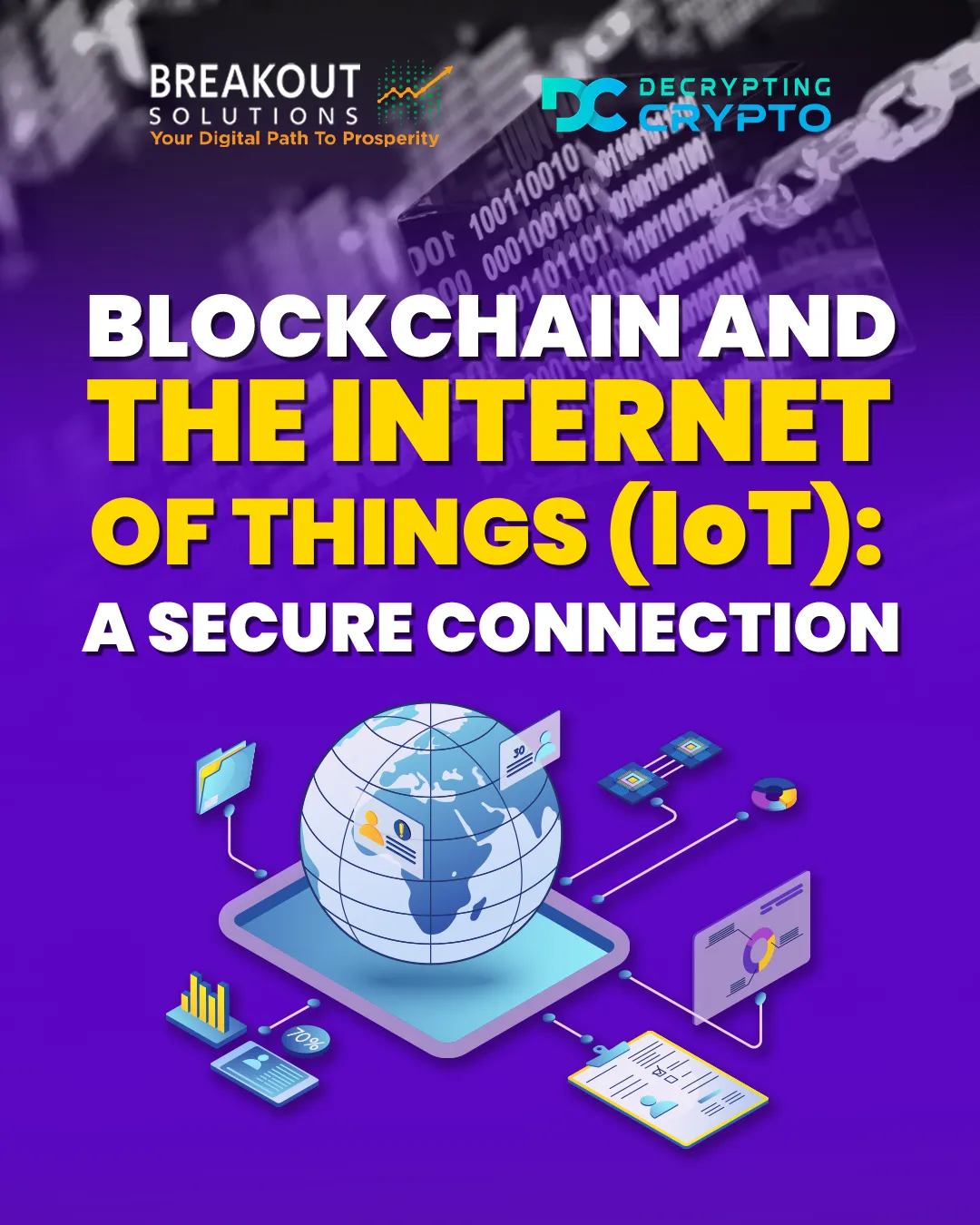Blockchain and the Internet of Things (IoT): A Secure Connection
Author: JR Foronda

In today’s rapidly evolving digital landscape, the Internet of Things (IoT) is revolutionizing how everyday objects around us interact and communicate. From smart homes that adjust temperature and lighting to fit our comfort, to vehicles that can navigate the roads almost independently, IoT devices are becoming integral to our daily lives. However, with this digital convenience comes the risk of security breaches. This is where blockchain technology comes into play, offering robust solutions to secure these vast networks of interconnected devices. Let’s explore how blockchain enhances IoT security and what this means for our connected future.
Understanding IoT and Blockchain
First, let’s break down the basics. The Internet of Things (IoT) refers to the network of physical objects—'things'—that are embedded with sensors, software, and other technologies to connect and exchange data with other devices and systems over the internet. These devices range from ordinary household items to sophisticated industrial tools.
Blockchain, on the other hand, is a decentralized ledger of all transactions across a network. Using blockchain, transactions are recorded chronologically and publicly, ensuring not only transparency but also security, as the data cannot be altered once recorded.
The Need for Enhanced IoT Security
As the number of IoT devices skyrockets, so does the potential for cybersecurity threats. Each device connected to the internet can potentially serve as an entry point for cyberattacks, which could compromise personal privacy or even safety. This risk highlights the need for a secure system to safeguard against unauthorized access and tampering.
How Blockchain Can Secure IoT
Decentralized Security
Unlike traditional security protocols that typically have a single point of failure, blockchain distributes data across a network of computers. This decentralization significantly reduces the risk of a single successful attack that could compromise an entire system.
Immutable Record-Keeping
Blockchain’s immutable ledgers ensure that once a transaction has been recorded, it cannot be altered. This is crucial for IoT devices, where altering recorded data from sensors could lead to disastrous outcomes. With blockchain, data from IoT devices can be trusted as accurate and tamper-proof.
Automatic Security Protocols
Blockchain can be programmed with smart contracts, which autonomously execute when specified conditions are met. For IoT, this means that devices can communicate and operate securely and efficiently without constant human oversight. For example, a smart contract could automatically authorize a connected vehicle to access a gated area once it verifies that the vehicle’s data matches the blockchain’s records.
Real-World Applications
Blockchain is already starting to secure IoT applications in various sectors:
- Smart Homes: Blockchain can ensure that only authorized devices and users can access and control various smart home systems, enhancing privacy and security.
- Supply Chains: In logistics, blockchain can help track goods from the manufacturer to the consumer, ensuring the data integrity of items as they move through various checkpoints.
- Healthcare: In connected healthcare systems, blockchain can secure the transmission of sensitive medical data from IoT medical devices, ensuring patient privacy and data accuracy.
What next….
As we continue to integrate technology into our everyday lives, the combination of blockchain and IoT holds great promise for creating a secure, interconnected world. By providing a robust framework for privacy and security, blockchain not only addresses the significant vulnerabilities associated with the IoT but also enables these technologies to be used safely and effectively. As these technologies evolve, the synergy between blockchain and IoT will undoubtedly open new horizons for innovation and efficiency, driving us toward a smarter and safer future.

